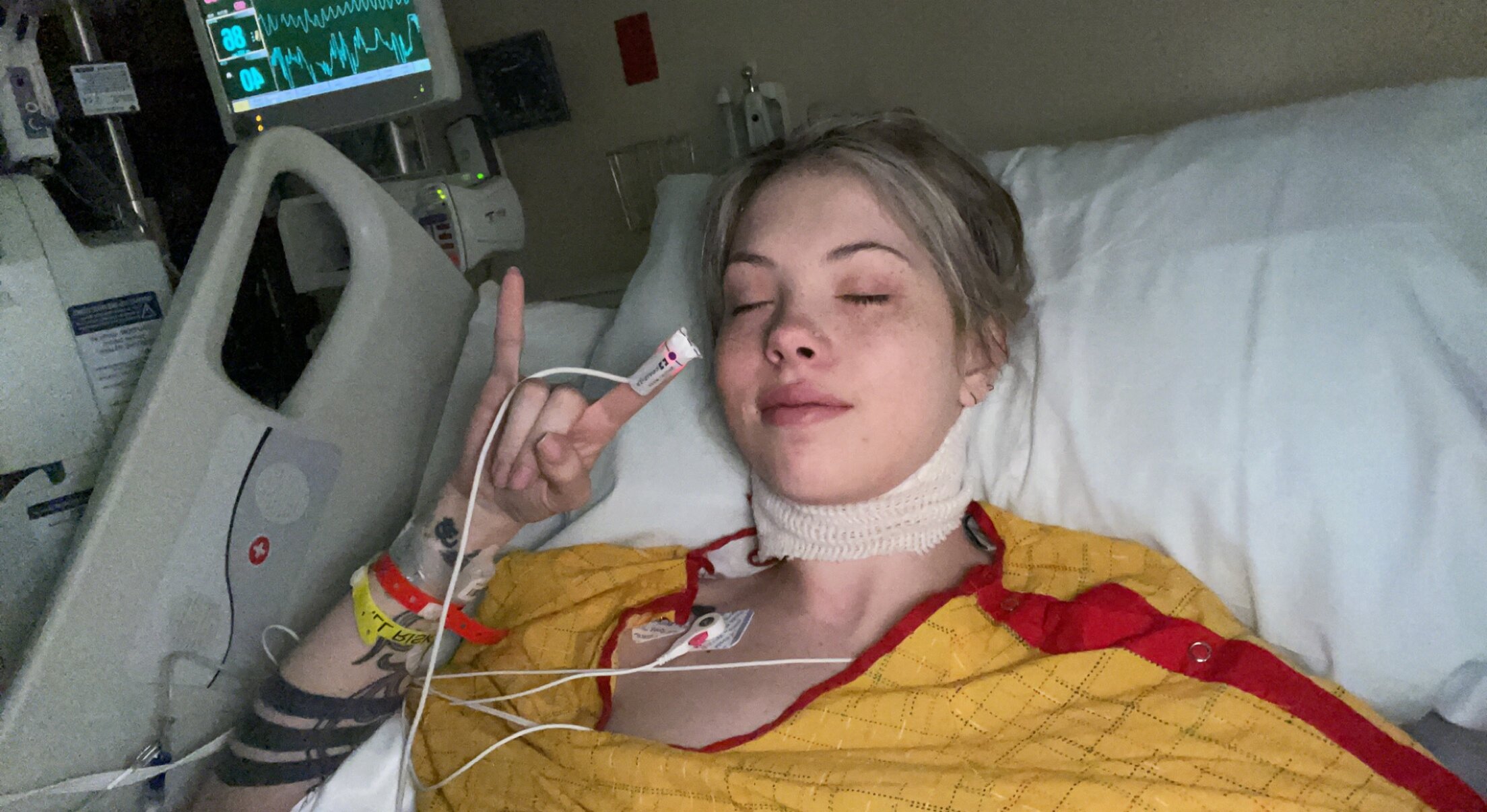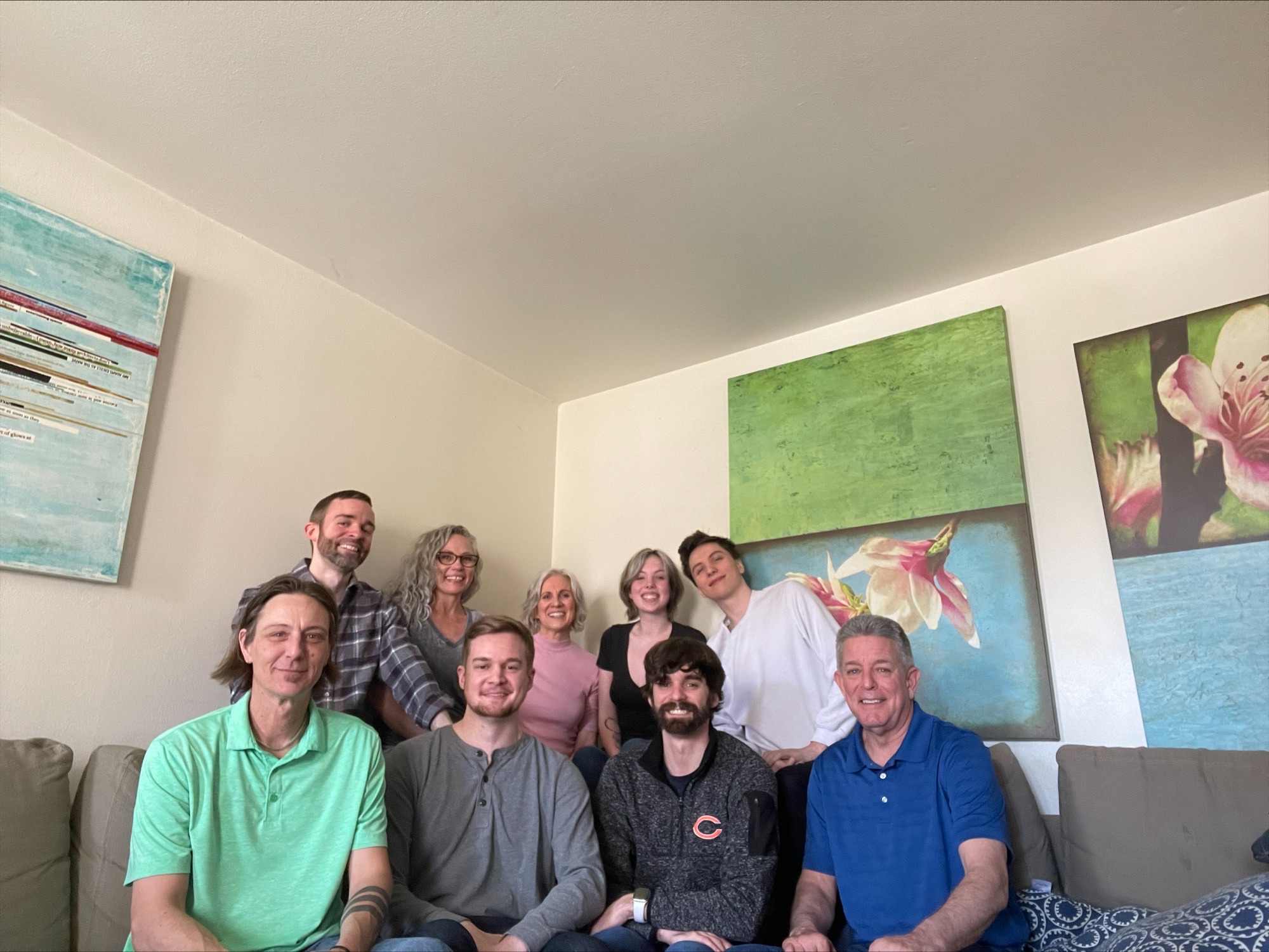Condition:
Adyson Prange is a 23-year-old professional and student officially diagnosed with Chiari Malformation – Type I when she was 22. Her malformation was initially diagnosed when she was 19, but at this time, her primary care physician opted not to pursue surgical intervention or to inform her of her CM diagnosis.

Introduction to UBA:
A friend recently had two brain surgeries to address tumors. Her friend’s neurosurgeon told her about UBA’s website, Brain Stories, and Brain Resources. Her friend emailed Adyson the link to UBA, and the content genuinely resonated with her. As a result, Adyson decided to share her Brain Story with UBA and our community to help others with Chiari Malformation (and other neurological diagnoses).
Diagnosis and Treatment:
Adyson was plagued with balance and sensory nerve issues throughout her life. These issues were the cause of numerous concussions: she had a few when she was between 2 and 3, several more before she turned 5, and more than eight concussions between 8 and 16. At age 15, one of these concussions resulted in memory loss and brain fog for over three months. Finally, on December 15, 2021, she lost her balance and motor control while descending hardwood stairs and collided face-first into a solid oak door. She received a battle scar on her lower jaw that she bears proudly to this day.
As Adyson turned 19, she became increasingly aware of her physical limitations and persistent headaches and approached her primary physician,
Her Chiari Malformation was diagnosed in December of 2021, but at this time, her primary care physician opted not to pursue surgical intervention or to inform her of her condition. She was evaluated by a neurologist who was not a CM specialist; her doctors elected to forgo surgical treatment of her malformation.
Fortunately, Adyson worked in the medical field and was persistent in finding a specialist to evaluate her condition. Not content with the recommended course of inaction, she exhaustedly researched her condition, and in March of 2022, she found Dr. James Stephen, a neurosurgeon and Chiari specialist from Aurora, CO.
Dr. Stephen recommended a surgical procedure to alleviate the condition; she underwent successful posterior fossa decompression and C1 laminectomy.
Adyson was diagnosed with Type I Chiari Malformation. As complex and potentially overwhelming as the diagnosis is, it is less severe than Types II, III, and IV.
Adyson was able to walk on the same day of her surgery and spent a total of 5 days in the hospital. She is still considering spinal fusion to treat her spinal scoliosis, a result of the excessive neck compressions caused by the malformation. Adyson was medically cleared to drive 3 weeks after her surgery.

Impact on past and present:
Adyson says her malformation impacted her early years in ways she still hasn’t realized. She was limited in the physical activities in which she could play. This restricted her interaction with peers and the potential friendships that may have followed. In addition, she sustained multiple concussions due to her sensory and balance issues and was prevented from participating in normal teenage activities. Ultimately, Adyson realizes she was unable to achieve her full potential before her surgery, but she’s rapidly making up for it now…
Daily ways to Cope:
Adyson is very proactive in her continued recovery from surgery. She has a supportive and closely knit family and a devoted boyfriend who are always there when she needs them. She regularly works out 5 to 7 hours per week and spends 1 hour each day undergoing physical therapy. In addition, she makes conscious choices to limit her exposure to head and neck impacts by being cautious during simple activities like entering and exiting vehicles, walking on nature trails, and engaging in outdoor activities – all things many of us take for granted.

Challenges:
After her surgery, Adyson has been able to enjoy a relatively “normal” life. However, she does have limitations: the high altitude of Colorado caused unbearable headaches; as a result, she has relocated to Illinois, where the elevation is lower, and the ambient barometric pressure is more comfortable. She has to avoid activities that could lead to head impacts and trauma, and she is vigilant in wearing protective headgear. She admits being an astronaut, deep sea diver, or MMA fighter is not possible, but she has found other outlets… and she has an impressive scar.
Social Limitations:
Adyson says, “The diagnosis means making new friends or spending time with old ones can be a bit difficult because I am limited in my abilities. Thankfully the ones I do have are very supportive and understanding.”
Adyson notes that receiving her diagnosis from Dr. Stephen was a liberating and cathartic experience. She knew something was wrong, but at first, she was unable to have it accurately diagnosed and treated. However, once she discovered what she was up against, she developed an action plan and followed through with it.
Helpful suggestions to others recently diagnosed:
Adyson can’t stress strongly enough the importance of being your own advocate, or if you are unable, of having a person close to you who understands you to advocate on your behalf. She also stresses the importance of perseverance: you have to navigate the healthcare system to find a specialist who can invest in your outcome to the same level you do.
To find more information on Chiari Malformation, please visit our Brain Resource page: https://unitedbrainassociation.info/brain-resources/chiari-malformation/
Do you or someone you love have a Brain Story to share? We’d love to feature you! Head over to our Brain Story page to learn how to submit your Brain Story. To learn more about our mission to find cures for brain and mental health-related issues and disorders, please visit our website at The United Brain Association. If you’d like to receive updates, news, scheduled events, or more information about our ongoing donor-funded research projects, sign up for our email newsletter by clicking here. Together we can find a cure.
You Are Not Alone
For you or a loved one to be diagnosed with a brain or mental health-related illness or disorder is overwhelming, and leads to a quest for support and answers to important questions. UBA has built a safe, caring and compassionate community for you to share your journey, connect with others in similar situations, learn about breakthroughs, and to simply find comfort.

Make a Donation, Make a Difference
We have a close relationship with researchers working on an array of brain and mental health-related issues and disorders. We keep abreast with cutting-edge research projects and fund those with the greatest insight and promise. Please donate generously today; help make a difference for your loved ones, now and in their future.
The United Brain Association – No Mind Left Behind




